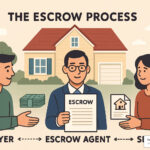Choosing the Right Broker: The Foundation of Your Real Estate Career
How to choose a broker as a real estate agent is one of the most critical decisions you’ll make in your real estate career. This choice will impact everything from your income potential to your daily work experience and long-term success.
Quick Answer: How to Choose a Broker as a Real Estate Agent
- Evaluate commission structures (splits, caps, and additional fees)
- Assess training and mentorship programs
- Consider the brokerage culture and if it aligns with your values
- Review technology and marketing tools provided
- Research the broker’s reputation and market presence
- Examine lead generation opportunities
- Evaluate office location and environment
Approximately 86% of homeowners use a real estate agent or broker when buying or selling a home, making your choice of brokerage a significant factor in your ability to capture this market. Think of selecting a broker like choosing a business partner rather than an employer – this relationship will directly influence your earning potential, professional development, and client acquisition strategies.
As a new agent, you may be tempted to focus solely on commission splits, but experienced agents understand that support, training, and resources often prove more valuable in the long run. According to Sam Fitz-Simon, a successful agent interviewed in our research, “Trainings are an essential part of the industry… staying sharp is essential!”
While your first broker choice is important, it’s not permanent. About 60% of agents change brokerages at least once during their career, so focus on finding the best fit for your current career stage.

How to choose a broker as a real estate agent terms at a glance:
– broker near me
– choosing a real estate broker
1. Clarify Your Career Goals (Start With Why)
Before you dive into broker interviews, take a moment to get crystal clear on your real estate dreams. Think of this step as creating your career GPS—it’ll help you steer which brokerage can truly support your journey.
What kind of agent do you want to be? Maybe you’re drawn to the luxury market with its high-end properties and discerning clients. Perhaps you feel called to help first-time homebuyers steer their exciting but overwhelming journey. Or maybe commercial real estate with its investment focus speaks to your analytical side.
Your income aspirations matter too. The Bureau of Labor Statistics reports that real estate agents earn an average of $61,890 annually—but that number tells only part of the story. Your actual earnings will swing dramatically based on your broker’s support systems, commission structure, and your personal drive. Setting clear financial targets now will help you evaluate whether a brokerage’s compensation model aligns with your goals.
“Joining a brokerage with a collaborative environment has been very rewarding for my career growth and helped me reach my income goals faster than I expected,” shares Matt Morgan, an agent we interviewed during our research.
Consider your preferred work style as well. Do you thrive in the energy of a team environment, or do you prefer the freedom of working independently? Are you jumping in full-time or balancing real estate with other commitments? How to choose a broker as a real estate agent becomes much clearer when you understand your own working style.
Many successful agents recommend creating a vision board or writing out a formal business plan before meeting potential brokers. This preparation helps you ask targeted questions rather than getting impressd by fancy offices or charismatic recruiters. When you know your “why,” you can cut through the sales pitch and focus on what truly matters for your unique journey.
More info about building your real estate business
2. Understand Commission Splits, Caps, and Fees
Money matters—especially when you’re building a real estate career. The financial arrangement between you and your broker isn’t just about a simple percentage split; it’s a complex relationship that directly impacts your take-home pay and long-term success.
How to choose a broker as a real estate agent—financial lens
When I talk with new agents, they often focus solely on getting the highest split possible. But as one experienced agent told me, “A 100% split of nothing is NOTHING! New agents should focus on training and support over the highest split.” This wisdom has saved countless new agents from making a costly mistake.
Your financial relationship with a broker typically involves several components:
Commission Splits form the foundation of your compensation structure. These typically come in three flavors:
– Traditional splits where you might keep 50%, 60%, or 70% of each commission
– High-split or 100% commission models (these sound great but usually come with higher monthly fees)
– Graduated plans that reward you with better splits as your production increases
Commission Caps are your best friend once you hit your stride. Think of a cap as the maximum amount you’ll pay your broker annually. For example, if your cap is $20,000 and you generate $200,000 in gross commission, you’ll walk away with $180,000. After reaching your cap, you typically keep 100% of commissions for the rest of the year—a beautiful thing during a hot streak!
But the financial picture doesn’t end there. Hidden fees can dramatically impact your bottom line. Be sure to ask about:
Desk fees ($85-$200 monthly), transaction fees that hit you at closing time, E&O insurance premiums that protect you legally, franchise fees (typically 3-8% of commissions for big-name brokerages), technology fees for all those shiny tools, and marketing package costs that might be mandatory.

Do the math before making your decision. For example, if you’re considering a 70/30 split with a $20,000 cap and expect to sell $1M (earning $30,000 in commission), you’d pay your broker $9,000. Compare that to a 100% model with $500 monthly fees where you’d pay $6,000 annually but receive minimal support.
Always ask this crucial question: “What other expenses might I be responsible for?” The answer might surprise you—and save you from profit-eating surprises down the road.
When evaluating brokerages from a financial perspective, the highest split isn’t always the best deal. Support, training, and lead generation can often be worth more than a few percentage points, especially in your early years.
How the Real Estate Commission Gets Divided Among Agents
3. Evaluate Training, Mentorship, and Onboarding Support
When you’re starting your real estate journey, the difference between struggling and thriving often comes down to one thing: support. That first year can be challenging, and having the right guidance is priceless.
“Real estate is not something you can master through training modules alone; on-the-job mentorship is crucial,” one experienced broker told us during our research. Those words couldn’t be more true.
Think of training programs as your foundation. A strong brokerage doesn’t just throw you into the deep end—they provide swimming lessons first! When interviewing potential brokers, get specific about their training calendar. Is it structured or sporadic? Are there dedicated classes for new agents? Many quality brokerages offer comprehensive training that would cost $200-$1,000 per class if purchased separately.
Mentorship deserves your special attention. Having someone who’s “been there, done that” by your side can transform your early experiences in real estate. One agent shared a story that really stuck with me: “My mentor helped me close my first three transactions. Without that guidance, I would have made costly mistakes or lost the deals entirely.”
When discussing mentorship, don’t be shy about asking:
– How the mentor program works (structured or casual?)
– The mentor-to-mentee ratio (are mentors spread too thin?)
– How mentors are compensated (some take a percentage of your commission)
– Whether you can choose your mentor or are assigned one
The onboarding process itself tells you volumes about how a brokerage treats its agents. Ask to see their onboarding checklist. Is it comprehensive? Does it include shadowing opportunities? The best brokerages have systematic approaches rather than a “sink or swim” mentality.
Carolina Walicki, an agent we interviewed, put it perfectly: “Look for a broker who invests in your success through structured training rather than throwing you into a ‘survival of the fittest’ environment.”
Don’t forget about continuing education requirements. Some brokerages include CE classes as part of their package, while others leave you to figure it out (and pay for it) on your own. This might seem minor now, but those costs and hassles add up over time.
When evaluating how to choose a broker as a real estate agent, good training isn’t just nice to have—it’s essential for your survival. A broker who invests in your growth demonstrates they’re invested in your long-term success, not just the commissions you’ll bring in.
More info about Real Estate Agent Skills
4. Examine Brokerage Culture and Values
The culture of a brokerage significantly impacts your daily work experience and long-term satisfaction. As one agent colorfully put it: “A broker’s ‘family’ atmosphere can quickly turn cutthroat when leads arrive.”

When you’re figuring out how to choose a broker as a real estate agent, don’t underestimate the importance of cultural fit. Think about it—you’ll spend countless hours in this environment, working alongside these people during some of your most stressful and triumphant moments.
Collaboration vs. competition shapes the daily atmosphere dramatically. Some offices buzz with energy as agents share tips and celebrate each other’s successes. Others foster a more competitive spirit where top producers are celebrated and newcomers must prove themselves. Neither is inherently wrong—the question is which environment helps you personally thrive?
“I visited one brokerage where agents literally kept their doors closed all day,” shares Melissa, an agent who participated in our research. “At my current office, we have an open floor plan and regularly bounce ideas off each other. That support system has been invaluable for my business growth.”
The ethics and reputation of your chosen brokerage will directly affect your own professional image. Clients associate you with your brokerage’s standards, so it’s worth asking: Does this firm prioritize exceptional client service and ethical practices over quick commissions? Your personal brand becomes intertwined with theirs from day one.
Pay close attention to agent retention rates—they tell a powerful story. High turnover often signals underlying cultural problems that glossy recruitment materials won’t reveal. During interviews, ask pointed questions like, “How long do agents typically stay with your brokerage?” and “What’s your retention rate compared to the industry average?”
Community involvement offers another window into a brokerage’s values. Firms that engage with local charities, sponsor community events, or maintain active partnerships with neighborhood organizations often foster a more connected, purpose-driven culture internally as well.
The demographics and diversity within an office can significantly impact your experience too. A healthy mix of new and experienced agents creates natural mentorship opportunities. Similarly, a brokerage that reflects the diversity of the community it serves may better understand varied client needs and market segments.
The most revealing way to evaluate culture is to experience it firsthand. Don’t hesitate to ask if you can:
– Sit in on a team meeting or training session
– Talk directly with current agents (request contact information for 3-5 agents at different experience levels)
– Observe how agents and staff interact with each other in their natural environment
One seasoned agent advised: “The interview goes both ways. You’re interviewing them as much as they’re interviewing you. Trust your gut feeling when you walk through the door.”
A brokerage’s culture directly influences its market reputation. According to our research, 94% of consumers said a bad review convinced them to avoid a business. The environment you choose to work in will ultimately shape how you serve clients and how those clients perceive you.
“I chose my brokerage because their values aligned with mine,” explains Jordan, a successful agent in her third year. “The emphasis on integrity over sales numbers has actually helped me build a referral-based business faster than I expected.”
More info about Choosing a Real Estate Broker
5. Size Matters: Boutique vs. National Franchise vs. Virtual
When it comes to how to choose a broker as a real estate agent, size and structure play a crucial role in your day-to-day experience and long-term growth. Think of it like choosing the right environment where you’ll thrive—each option has its own personality and perks.
Boutique brokerages feel like joining a close-knit family. You’ll likely get more one-on-one time with your broker and experienced agents who can take you under their wing. These smaller firms often have deep roots in specific neighborhoods or property niches—perfect if you’re looking to become a local expert. While they typically offer sweeter commission splits, you’ll need to hustle more for leads and build your own brand recognition.
“At my boutique brokerage, I found I could get more personalized attention and flexibility,” shares Matt Morgan, “though I had to work harder to establish my personal brand.”
National franchises, on the other hand, are like joining a well-oiled machine with instant name recognition. When you introduce yourself as an agent from a household-name brokerage, clients often feel an immediate sense of trust. These firms have invested millions in developing training systems and marketing materials you can leverage from day one. The nationwide referral network can be golden, especially in areas with lots of relocation business. Just remember those franchise fees (typically 3-8%) that come off the top of your commissions.
Virtual brokerages represent the new frontier in real estate. With lower overhead costs, these tech-forward companies often pass savings to agents through better commission splits. If you value flexibility and consider yourself digitally savvy, this could be your sweet spot. You can work from your favorite coffee shop or home office while accessing cutting-edge tools. The trade-off? You’ll need serious self-discipline and independence, as in-person mentorship opportunities are limited.
Your working style matters tremendously in this decision. As one broker candidly explained: “National franchise brokerages are excellent for new and experienced agents who value mentorship and top-notch training, while boutique firms might better serve agents with established client bases who need less support.”
For those just starting out, don’t let the allure of higher splits at virtual or boutique firms blind you to the value of solid training and support. That said, if you’re naturally tech-savvy and self-motivated, a virtual brokerage might be the perfect launchpad for your career.
The beauty of our industry is that you can find your perfect fit—whether that’s the cozy boutique where everyone knows your name, the powerhouse franchise with systems for everything, or the innovative virtual brokerage that’s redefining how real estate works.
Independent vs Franchise Real Estate Brokerages: Which One is Right for You?
6. Technology Stack and Marketing Tools
In today’s digital-first real estate landscape, the tech tools and marketing resources your broker provides can make or break your business. Think about it – you could spend hours manually following up with leads, or let automation do the heavy lifting while you focus on closing deals.
How to choose a broker as a real estate agent—tech & marketing lens
Did you know that more than 95% of home buyers begin their search online? This digital shift means your broker’s technology commitment directly impacts your success.
When I talk with agents about broker technology, they consistently mention that a robust Client Relationship Management (CRM) system tops their must-have list. A good CRM helps you nurture leads, automate follow-ups, and track your entire client pipeline without letting potential clients fall through the cracks.
“At my previous brokerage, I cobbled together my own tech stack at significant personal expense,” one agent told me. “My current broker provides enterprise-level tools that would cost thousands annually if purchased independently.”

Beyond CRM, evaluate whether brokers offer personal websites with IDX integration so you can display MLS listings directly. Ask about marketing automation tools for email campaigns and social media scheduling – these can save you hours each week while keeping you consistently visible to prospects.
Matt Morgan, a successful agent I interviewed, emphasized the time-saving aspect: “At my brokerage, we invest heavily in digital marketing tools that help us reach more clients with less effort. The automation saves me hours each week.”
The visual side matters too. Does the brokerage provide access to professional photography, virtual tour software, and video marketing tools? In a market where buyers often decide whether to view a home based solely on online photos, these resources can significantly impact your listing success.
When interviewing potential brokers, don’t just take their word about technology – ask for demonstrations of their platforms and speak with current agents about the learning curve and effectiveness of the tools provided. A tech-forward broker should offer:
- Initial and ongoing technology training (not just access to tools)
- Responsive support for troubleshooting issues
- Regular updates and improvements to systems
- Seamless integration between various platforms
The marketing resources are equally important. Look for brokers offering professional templates for listing presentations and social media, access to design services or premium platforms like Canva Pro, and co-op advertising opportunities that amplify your marketing budget.
Technology isn’t just about impressing clients – it’s about giving you back precious time to focus on relationship-building activities that actually grow your business.
Real Estate in a Digital Age, 2021 Report
7. Lead Generation and Referral Opportunities
Let’s face it—even the most talented agents need clients to succeed! The way your potential brokerage generates and distributes leads could make or break your early career momentum.
Think of lead generation as the lifeblood of your business, especially when you’re just starting out. During my conversations with successful agents, I’ve found that access to quality leads often ranks higher than commission splits for rookies.
Floor duty (sometimes called “sitting the desk”) can be a goldmine for new agents. When you’re on floor duty, you handle walk-in clients and incoming office calls. As Maria, a second-year agent told me, “My first two transactions came from floor time. Those clients might not have been ‘mine’ otherwise, and they’ve since referred three friends to me.”
When interviewing brokerages, don’t just ask if they offer floor time—dig deeper into how valuable it actually is. Some offices get steady walk-in traffic due to prime locations, while others might be virtual ghost towns. Ask directly: “How many walk-ins does this office typically get each week, and what’s the conversion rate?”
Many brokerages now invest in paid lead sources from portals like Zillow, realtor.com, or social media campaigns. These can be distributed in various ways:
– Round-robin assignment systems
– Performance-based allocation
– Pay-to-play models where agents buy into lead pools
“My broker purchases Zillow leads and distributes them based on agent responsiveness stats,” shared one agent. “It costs me an extra 10% in split on those transactions, but the volume makes it worthwhile.”
Don’t overlook the power of relocation networks and referrals. National franchises often have established relocation departments that feed leads to their agents. One broker explained, “Our relocation department generates about 120 leads annually, distributed among agents who’ve completed our relocation certification.”
For many new agents, joining a team within a brokerage offers the best of both worlds—mentorship plus lead flow. Teams typically operate on different commission structures, with team leaders providing leads in exchange for a larger cut of your commission.
“On my team, new agents start with a 50/50 split on team-provided leads,” explained one team leader. “As they develop skills and independence, their split improves. It’s a fair trade—consistent business in exchange for a portion of the commission.”
Remember to verify any lead generation claims with current agents. The broker might boast about their amazing lead program, but the agents working there will tell you the real story about quality and quantity.
How to choose a broker as a real estate agent often comes down to finding the right balance between lead support and commission structure. For most new agents, a steady stream of leads—even at a lower split—beats a higher split with no clients every time.
8. Broker Reputation and Market Share
Your clients will judge you partly by the company you keep. A broker’s reputation in the community can either open doors for you or leave you explaining away negative perceptions. According to our research, a whopping 94% of consumers said a bad review was enough to make them avoid a business entirely. That’s why evaluating a broker’s standing should be high on your priority list when deciding how to choose a broker as a real estate agent.
When I was starting out, my mentor told me something I’ll never forget: “Your broker’s reputation precedes you into every living room before you even knock on the door.” This couldn’t be more true.
To properly assess a broker’s reputation, look at it from multiple angles:
Consumer Perception matters tremendously. Take time to browse Google and Yelp reviews, and scan social media mentions. Don’t just count stars—read what customers are actually saying. I always recommend asking friends and family what they think about different brokerages in your area. They’ll often give you the unfiltered truth that marketing materials won’t.
Pay special attention to how the brokerage responds to negative reviews. Do they address concerns professionally or get defensive? This tells you volumes about their culture.
Industry Standing is equally important. Lenders, title companies, and other real estate professionals work with brokerages daily and know who’s professional and who’s problematic. One agent I interviewed shared: “I called three local title officers and asked who they enjoyed working with most. All three mentioned the same two brokerages—that told me everything I needed to know.”
Look for industry awards and recognitions, and check the broker’s standing with the local Realtor association. Ethical issues or frequent complaints are red flags you shouldn’t ignore.
Market Share and Presence can indicate a broker’s success and stability. When you drive through your target neighborhoods, whose signs do you see most often? A strong market presence usually translates to better brand recognition with potential clients.
“What percentage of local listings does your brokerage represent?” is a question worth asking directly. Good brokers will give you a straightforward answer without exaggeration. In some markets, even a 5-10% share can be significant.
Don’t be shy about typing the broker’s name plus words like “complaint” or “lawsuit” into a search engine. Better to find any serious issues before you commit rather than after.
While impressive market share often signals success, it doesn’t automatically mean that broker is right for you. I’ve known agents who thrived at boutique firms with only 3% market share because the reputation for excellence and personalized service attracted high-quality clients.
Agent retention rates speak volumes about satisfaction from within. Ask pointedly: “What percentage of your agents have been with the company for more than three years?” High turnover might indicate internal problems that marketing glosses over.
You’re not just joining a company—you’re associating your personal brand with theirs. Choose a broker whose reputation will improve yours, not one you’ll need to overcome.
9. Location and Office Environment
While real estate has acceptd the digital revolution, your physical workspace still matters—both for your daily satisfaction and the impression it makes on clients.

When I first started in real estate, I was so focused on commission splits that I completely overlooked my daily commute. Big mistake! After three months of spending two hours in traffic daily, I realized how to choose a broker as a real estate agent should definitely include location considerations.
Your commute matters more than you think. As one experienced agent told me, “Every extra minute on the road is a minute you’re not making money.” Consider not just the distance to the office, but parking availability for both you and your clients. Is the location easily accessible from your target neighborhoods?
The office environment speaks volumes about a brokerage’s values and professionalism. When you visit potential brokerages, pay attention to your first impressions—clients will notice the same things. Is the space welcoming and well-maintained? Are there private areas for client meetings? Does the technology look current or dated?
One savvy agent shared this tip: “Watch how you’re greeted when you enter. If the receptionist ignores you for several minutes, imagine how your clients might feel during that same wait.”
The functionality of the workspace directly impacts your productivity. Look for comfortable agent workstations, reliable Wi-Fi, and well-equipped conference rooms. Some agents thrive in busy, energetic offices, while others prefer quieter environments—know which type motivates you.
Hybrid and remote options have become increasingly important in today’s market. Many brokerages now offer flexible arrangements where agents can work from home part-time. One broker I interviewed noted, “Some of our top producers haven’t set foot in the physical office in months, but they’re still deeply connected to our brokerage community through our virtual systems.”
If you’re considering a virtual or hybrid brokerage, ask specific questions about how they maintain team cohesion. Do they host regular virtual meetings? Is there an active digital community where agents can share ideas and seek advice?
The office location can also influence your market perception. A brokerage with an address in the historic district might attract more preservation-minded clients, while one in a tech corridor could connect you with relocating professionals. Think about how the location aligns with your target client base.
Office prestige often comes with higher desk fees or lower commission splits. Calculate whether the premium location justifies the additional cost based on your business model and client acquisition strategy.
For most new agents, finding the sweet spot between convenience, professional atmosphere, and flexibility will serve you better than focusing solely on prestige or amenities you’ll rarely use.
10. Compliance, Legal Support, and E&O Insurance
The legal complexities of real estate transactions can be daunting, especially for new agents. One wrong move could potentially lead to serious consequences for both you and your clients. That’s why the compliance support and Errors and Omissions (E&O) insurance your broker provides aren’t just nice-to-haves—they’re essential shields for your business and reputation.
When I spoke with experienced agents, they consistently emphasized how valuable strong broker support was during challenging transactions. As one veteran agent put it, “Having someone to call when a contract issue arises at 8 PM on a Friday has saved me countless headaches—and possibly my license.”
Contract and compliance support should be a top priority when evaluating brokerages. During interviews, don’t hesitate to ask direct questions: Who reviews contracts before submission? Is there an attorney on staff or on retainer? What happens when you have an urgent legal question outside of regular business hours?
The best brokerages have created systems that catch potential issues before they become problems, including transaction checklists, multiple levels of contract review, and clear escalation procedures for complex situations.
E&O insurance coverage is your safety net against honest mistakes. Make sure you understand exactly what’s covered under your potential brokerage’s policy. Ask about coverage limits, your personal deductible in case of a claim, and any exclusions you should know about.
One broker I interviewed explained it perfectly: “E&O insurance covers honest mistakes but excludes fraudulent acts and personal transactions. Understanding your coverage is essential for peace of mind.”
Risk management training is another crucial aspect that varies widely between brokerages. Progressive firms offer regular training sessions on compliance issues and promptly communicate legal changes affecting transactions. This ongoing education helps you stay ahead of potential pitfalls and demonstrates the broker’s commitment to your success.
Approximately 90% of real estate licensees operate as independent contractors, which can affect liability in complex ways. Be sure to ask: “As an independent contractor, what legal protections do I have through the brokerage?”
As one experienced agent noted during our research: “Good compliance support isn’t just about avoiding lawsuits—it’s about sleeping well at night knowing you’re protected while serving clients ethically.”
When evaluating brokerages through this how to choose a broker as a real estate agent lens, look beyond flashy promises of high splits or fancy offices. The quality of legal support and risk management could ultimately have a much greater impact on your long-term success and professional reputation.
11. Administrative and Transaction Management Resources
Behind every successful real estate transaction is a mountain of paperwork and administrative tasks. The level of support your broker provides in this area can be the difference between spending your days drowning in paperwork or meeting with clients and closing deals.
When I spoke with top-producing agents for this guide, one sentiment came up repeatedly: administrative support translates directly to income potential. As experienced agent Maria Sanchez told me, “Having a dedicated transaction coordinator saved me at least 10 hours per transaction, allowing me to focus on generating new business instead of paperwork.”
Transaction coordination is perhaps the most valuable administrative resource a brokerage can offer. Some brokerages include this service in your commission split, while others offer it for an additional fee per transaction. Either way, having someone who manages the contract-to-closing timeline, coordinates inspections, and handles document collection can dramatically improve your productivity and client experience.
The document processing support varies dramatically between brokerages. Some handle everything from MLS uploads to marketing material creation, while others expect agents to manage these tasks independently. During your broker interviews, ask specifically about who handles:
- MLS listings and updates
- Marketing material creation and distribution
- Contract submission and processing
- File compliance and documentation
Technology integration has become increasingly important in transaction management. Most forward-thinking brokerages now offer e-signature platforms and transaction management systems that keep everything organized and accessible. These systems not only save time but also reduce errors and compliance issues.
“Before my brokerage implemented a transaction management system, I was constantly hunting for documents across emails and file folders,” shared one agent. “Now everything is in one place, accessible from anywhere, and I never miss a deadline.”
Financial flexibility is another consideration that many new agents overlook. Some brokerages offer “paid-at-closing” options for marketing expenses, which can help with cash flow when you’re building your business. Also inquire about how quickly commissions are processed after closing—some brokerages take weeks, creating unnecessary financial stress for agents.
According to our research, the administrative support landscape varies widely:
- Full-service brokerages provide comprehensive support included in your split
- Hybrid models offer basic services with premium options available for additional fees
- 100% commission models typically require agents to handle all administrative tasks independently or hire their own support
When interviewing potential brokers, ask them to walk you through the exact workflow of a transaction from contract to closing. This will give you insight into how streamlined their processes are and how much of the administrative burden falls on your shoulders.
Every hour spent on paperwork is an hour not spent on dollar-productive activities like prospecting, showing properties, or negotiating deals. The right administrative support can multiply your productivity and ultimately your income.
12. Expectations, Quotas, and Accountability
Knowing what your broker expects from you—and how they’ll measure your success—can make or break your real estate career satisfaction. It’s like understanding the rules of the game before you start playing!
When I sat down with Melissa, a top-producing agent who recently switched brokerages, she shared something eye-opening: “I wish I’d asked more detailed questions about expectations at my first brokerage. I was blindsided by mandatory floor time that ate into my prospecting hours.”
Production Requirements vary dramatically between brokerages. Some firms maintain strict sales quotas where falling short might lead to a difficult conversation with your broker. Others take a more growth-oriented approach, focusing on your improvement rather than hitting specific numbers.
During your interviews, don’t hesitate to ask directly: “Are there minimum sales quotas for agents?” Follow up with: “How are new agents evaluated differently from experienced ones?” A supportive broker will have thoughtful answers that recognize the learning curve for newcomers.
Office Responsibilities can significantly impact your schedule and productivity. At some brokerages, you might be required to handle phone or desk duty for 4-6 hours weekly—time you won’t be out showing homes or prospecting. Be sure to ask about mandatory office meetings, training sessions, and committee participation expectations.
One agent shared with me: “My broker requires weekly accountability meetings, which seemed overwhelming at first. But honestly, these check-ins have kept me focused and doubled my production.”
Marketing and Branding Standards might limit or improve your personal brand development. Some brokerages have strict guidelines about using their templates and logos, while others encourage agents to develop distinctive personal brands alongside the company identity.
“Understanding what marketing materials must follow brokerage templates saved me from wasting money on business cards I couldn’t use,” explained a new agent I interviewed.
Performance Metrics reveal what your broker truly values. Beyond raw sales numbers, some brokerages track:
– Lead conversion rates
– Average days on market
– Client satisfaction scores
– Community involvement
– Continuing education achievements
According to our research, the most successful brokerages balance accountability with robust support. As one broker put it: “We set high expectations, but we also provide the coaching, tools, and encouragement to help our agents exceed them.”
The right accountability structure for you depends largely on your personality and work style. Self-motivated agents might thrive with minimal oversight, while others benefit from more structured guidance and regular check-ins.
There’s no universally “best” approach—just the approach that best matches your needs. As you interview brokerages, listen carefully to how they discuss agent performance. Do they focus on nurturing growth or simply demanding results? Their philosophy on accountability offers important clues about their overall culture and values.
13. Financial Benefits Beyond Commission
When you’re evaluating brokerages, it’s easy to focus solely on commission splits, but savvy agents look deeper at the financial perks that can significantly boost your overall compensation package. These additional benefits can make a substantial difference to your bottom line and financial security.
Health and retirement benefits are often overlooked in commission-focused conversations. As one broker I interviewed candidly shared: “Traditional employees receive benefits like health insurance and retirement plans. As independent contractors, real estate agents often miss out on these unless the brokerage specifically creates programs to address them.”
This gap in benefits can be particularly jarring if you’re transitioning from a corporate career where comprehensive benefits were standard. Fortunately, innovative brokerages are stepping up their game.
Many forward-thinking firms now offer group health insurance access, allowing you to obtain coverage at more reasonable rates than individually. Some even provide retirement matching programs similar to a traditional employer’s 401(k) match, helping you build long-term wealth beyond your commission checks.
Business expense support can also substantially impact your take-home pay. Ask potential brokers about marketing allowances or stipends for continuing education. Some brokerages will cover the costs of designation courses or provide you with a marketing budget to promote your listings.
“The marketing stipend my brokerage provides saves me about $2,500 annually,” shared one agent in our research. “That’s money that stays in my pocket rather than coming out of my commission.”
Vendor relationships can translate into meaningful savings too. Many brokerages negotiate discounts with photographers, home stagers, technology providers, and office supply companies. These seemingly small savings can add up to thousands of dollars annually.
Perhaps most intriguing are the long-term equity opportunities some brokerages now offer. Stock options, revenue sharing for agent referrals, and ownership stakes provide ways to build wealth beyond your transaction-based income.
As one particularly successful agent noted: “The revenue sharing program at my brokerage adds about 15% to my annual income—money I wouldn’t see in a traditional commission-only structure.”
Some companies even offer profit-sharing models where top producers receive a percentage of the brokerage’s overall profits, aligning your interests with the company’s growth.
When comparing brokerages, take time to calculate the actual financial value of these additional benefits. A slightly lower commission split might be more than offset by comprehensive health insurance or substantial marketing support. Consider your specific situation—a young, healthy agent might value retirement matching more than health insurance, while a parent might prioritize healthcare benefits.
These benefits reflect a brokerage’s commitment to agent success and well-being. A company investing in your financial security is likely investing in other aspects of your career as well.
14. Growth Path: Teams, Leadership, and Exit Strategies
Your real estate career is a journey, not just a job. The right broker doesn’t just support where you are today—they provide clear pathways for where you want to go tomorrow.
“Most real estate agents never retire, they just expire. Having an exit strategy is crucial but often overlooked,” shared one broker during our research interviews. This sobering perspective highlights why understanding your long-term options matters from day one.
Team opportunities can provide structured growth, especially for newer agents. Many find that joining a team offers the perfect balance of support and independence. As one team leader explained to us: “On my team, agents start handling buyer leads, then listing presentations, and eventually develop their own client base while learning management skills.”
When exploring a brokerage’s team structure, pay attention to how teams operate within the company. Some brokerages actively encourage team formation with dedicated resources, while others prefer the solo agent model. Neither approach is inherently better—what matters is which aligns with your vision.
Leadership development varies dramatically between brokerages. If you aspire to management roles, investigate whether the company promotes from within or typically hires externally. Ask about specific training programs for future leaders and opportunities to mentor newer agents as you gain experience.
“I never thought I’d want to manage others, but my broker saw leadership potential in me before I did,” shared one agent who now serves as a regional director. “The mentoring program they offered gave me a chance to test the waters before committing to a full management role.”
Business expansion possibilities should factor into your decision if you have entrepreneurial aspirations. Some brokerages offer clear paths to opening satellite offices or developing specialty divisions. Others may restrict your ability to grow beyond a certain point, preferring to maintain corporate control over expansion.
Perhaps most overlooked is the importance of exit strategies. Your first brokerage may not be your forever home, and even a lifelong real estate career eventually needs a transition plan. A confident, secure broker won’t make departures unnecessarily difficult and will offer resources for succession planning.
Ask pointed questions about:
– The process for transitioning your business when you’re ready to retire
– Options for selling your book of business to other agents
– What happens to your clients if you leave the brokerage
– Requirements and restrictions when moving to another company
Approximately 60% of agents change brokerages at least once in their career. A broker who treats your potential departure as taboo may not have your best interests at heart.
“I’ve been through three brokerages in my career, each serving a different phase of my development,” explained a veteran agent. “My current broker not only helped me build a team but is now guiding me through creating a succession plan so I can gradually reduce my workload while maintaining my income.”
The best broker for your growth path is one who sees your potential and offers flexible options that can evolve with your changing goals throughout your real estate journey.
15. The Ultimate Checklist: How to Choose a Broker as a Real Estate Agent
Finding the right broker is a bit like dating—you want to make sure there’s a good match before committing to a relationship that will significantly impact your career. To help you steer this important decision with confidence, I’ve created this comprehensive checklist that puts all the key factors in one place.

When I interviewed successful agents for this guide, one piece of advice came up repeatedly: “Use a systematic approach when evaluating brokerages.” Many recommended creating a simple scoring system (perhaps 1-5 points) for each factor, allowing you to compare options more objectively when your emotions might be swayed by an impressive office or charismatic broker.
Let’s break down what you should evaluate in each major category:
Financial considerations form the foundation of your business relationship. Beyond the basic commission split, dig into the cap amount (where applicable), any desk or monthly fees, franchise fees if it’s a branded brokerage, transaction fees per closing, and E&O insurance costs. One agent told me, “I almost signed with a brokerage offering a ‘generous’ 80/20 split before finding their hidden transaction fees would cost me an additional $3,000 annually!”
Training and support can make or break your early career. Evaluate the new agent training program’s depth and frequency, continuing education offerings, and the structure of any mentorship programs. Ask detailed questions about contract and compliance support—who will help when you’re stuck on a tricky transaction at 8 PM? Also consider the technology training and business development coaching available.
Culture and environment might seem intangible, but they’ll shape your daily experience. Pay attention to the office atmosphere during your visits, agent demographics and retention rates, and management accessibility. Is the environment collaborative or fiercely competitive? Does the brokerage engage with the community in meaningful ways? Do they recognize agent achievements beyond just sales volume?
Technology and marketing tools can dramatically impact your productivity. Evaluate the CRM system (ask for a demo!), transaction management platform, website and IDX offerings, and available marketing templates. Social media support and lead generation tools can also give you a significant edge in today’s digital-first market.
Growth and opportunity pathways reveal whether this brokerage can support your long-term vision. Understand their lead distribution system, team formation support if that’s in your future plans, leadership pathways for those with management aspirations, and specialization opportunities if you have a niche interest. Don’t forget to ask about long-term career planning and exit strategy options—even if retirement seems far away.
Practical considerations matter more than you might think. Evaluate the office location and your potential commute, the quality of the working environment, parking and accessibility for you and clients, the brokerage’s market presence in your target areas, overall broker reputation, and administrative support available.
“I interviewed five brokerages and scored each on my personal priority factors,” shared one particularly methodical agent I spoke with. “The clear winner wasn’t the one offering the highest split, but the one that best supported my specific business goals.”
Remember to weight these factors based on your personal priorities and career stage. How to choose a broker as a real estate agent is ultimately a personal decision—new agents typically benefit from prioritizing training and mentorship, while experienced agents might focus more on commission structure and autonomy.
Don’t rush this decision. Take your time, ask thoughtful questions, and trust your instincts. The right broker will feel like a partner in your success, not just a company that processes your paperwork.
More info about Top 5 Things to Look For
Frequently Asked Questions About Choosing a Real Estate Broker
Choosing the right broker can feel overwhelming, but you’re not alone in having questions. Let’s explore the most common concerns agents have when making this critical career decision.
What should I ask in a broker interview?
Walking into a broker interview can be nerve-wracking, but remember—you’re interviewing them as much as they’re interviewing you! Come prepared with questions that reveal what matters most for your success.
“What is your commission structure, including splits, caps, and additional fees?” Start with the financial foundation of your relationship. Beyond the basic split, understand when caps kick in and what “hidden” fees might impact your bottom line.
“How are new agents trained and supported through their first transactions?” The quality of training can make or break your early career. Listen for specific programs rather than vague promises.
“What technology and marketing resources do you provide?” In today’s digital-first market, the right tech stack can dramatically impact your productivity and client acquisition.
“How are leads distributed?” Some brokerages have formal systems while others operate on a “fastest finger” basis. Neither is inherently wrong, but you should know what you’re signing up for.
“What makes your culture unique?” Pay attention not just to what they say, but how they say it. Does the broker light up when discussing their agents’ successes?
“The interview goes both ways,” shares one broker I spoke with. “A broker who seems annoyed by your questions might not be transparent in other areas of the business either.” Trust your gut feeling during these conversations—it’s often right.
Don’t leave without asking to speak with current agents about their experiences. Their candid feedback will tell you more than any recruiting pitch ever could.
Can I change brokerages later if it’s not a fit?
Absolutely! The real estate industry understands that broker-agent relationships evolve. About 60% of agents change brokerages at least once in their career, so you’re not locked in forever.
When considering a switch, keep these practicalities in mind:
First, review your independent contractor agreement for notice requirements—most require 2-4 weeks’ notice. Understand the license transfer process in your state, which typically involves paperwork and a small fee. Plan for transition costs like new marketing materials and business cards. And think carefully about timing to minimize disruption to your current transactions.
“The key is to make the transition as seamless as possible for your clients,” advises an agent who successfully changed brokerages. “I focused on what additional value I could provide them through my new brokerage rather than criticizing my former one.”
How you leave says as much about you as how you arrive. Maintain professionalism even if you’re unhappy—the real estate community is smaller than you think!
Should new agents prioritize splits or support?
This question hits at the heart of what new agents misunderstand about broker selection. While a high split sounds attractive, comprehensive support and training should take priority when you’re starting out.
As one experienced broker colorfully put it: “A 100% split of nothing is NOTHING!” This wisdom captures why focusing solely on commission percentage can be shortsighted for newcomers.
Think about it this way: If a brokerage offering a 70/30 split helps you close 10 transactions in your first year through training and support, while one offering an 80/20 split but minimal guidance results in only 5 closings, you’re financially better off with the lower split while gaining invaluable experience.
New agents should prioritize structured training programs, accessible mentorship, lead generation support, comprehensive marketing resources, and administrative assistance. These elements create the foundation for long-term success that extends far beyond your first year’s income.
“In my first two years, I gladly accepted a lower split for the training that helped me build my business,” one successful agent shared. “Once established, I renegotiated for better terms.” Your bargaining power increases with your experience and production—patience pays off.
How to choose a broker as a real estate agent ultimately comes down to finding the right fit for your current career stage, with an eye toward where you want to be in the future.
Conclusion
Selecting the right real estate broker isn’t just a box to check—it’s a decision that will shape your entire career journey. Throughout this guide, we’ve walked through 15 critical factors that can make or break your real estate experience, especially during those formative early years.
How to choose a broker as a real estate agent goes far beyond hunting for the highest commission split. The right decision balances financial considerations with the support, culture, and growth opportunities that will help you flourish in this competitive industry.
Take a deep breath and give yourself permission to be thorough in this process:
First, look inward and get crystal clear about what matters most to you. Are you seeking intensive mentorship? Financial stability? Work-life balance? Your unique priorities should guide your search.
Then, roll up your sleeves and research multiple brokerages. Don’t settle for the first option or make decisions based solely on what friends recommend. Your career deserves this investment of time.
When sitting across from potential brokers, come armed with thoughtful questions. Watch how they respond—are they transparent or evasive? Do they seem genuinely interested in your success?
Some of the most valuable insights will come from agents currently working with the brokerage. Their candid feedback can reveal the day-to-day reality behind the recruiting promises.
Perfect isn’t the goal—finding the right fit is. One agent shared with me, “I knew I found my broker home when I could clearly envision my future there, challenges and all.”
The broker you choose today doesn’t need to be your forever home in real estate. Many successful agents change brokerages as their needs evolve. What matters is making a choice that accelerates your growth now and opens doors for your future.
At YourGuideToRealEstate.net, we believe informed decisions create stronger careers. We’re rooting for your success and committed to providing resources that support your journey every step of the way.
Ready to develop the skills that will help you thrive with any broker? We’ve got you covered.
More info about Real Estate Agent Skills
Your real estate story is just beginning. Choose your broker partner wisely, and you’ll be writing an exciting first chapter in what could become an incredible career narrative.





















